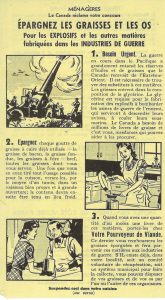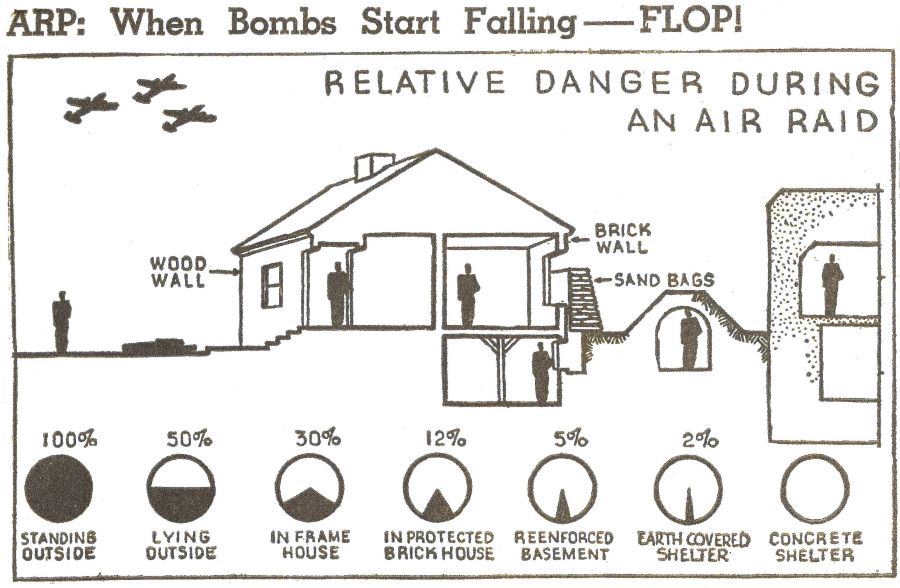The War Effort in the Home
The daily lives of the women of Verdun were completely transformed during both world wars by imposed restrictions that led to a major change in consumer habits.
Verdun women had to save clothes, bones, animal fats, paper, jars, rags and other household articles useful to the war effort. They also had to contend with food rationing, particularly sugar, butter and meat.
Starting in 1943, Verdun women received ration book with a limited number of coupons or stamps that could be exchanged for certain items that had become very rare. Families turned to growing “victory gardens” to mitigate the effects of these shortages. The City had hundreds of these gardens that contributed to providing food for thousands of Verdunites.
Listen to the audio clip in French, with a translated transcript, of Noëlla Bisson talking about changes in behaviour, including in the home.
While it was very unlikely that Verdun would be attacked, civil defence measures were nevertheless put in place during the Second World War. The Civilian Protection Committee of Verdun was created in June 1940 to train volunteers to help police, firefighters and hospital staff in the event of an air attack. The Committee organized public presentations on precautions to take against bombing raids, and demonstrated first aid and fire fighting techniques using fire extinguishers and shovels to respond to fires caused by incendiary bombs.
Verdunites also participated in impressive air attack and blackout simulations. The simulated bombing of City Hall in October 1942 was so realistic that many residents thought they were truly under attack!
Listen to the audio clip in French, with a translated transcript, of Noëlla Bisson talking about the blackouts.



![Black and white advertisement titled “Campagne nationale de recuperation” [National salvage campaign]. Image of four piles of materials identified as Paper, Metals, Bones, Rags. Below, the text “Ménagères! Vous ête en guerre, voilà vos armes [Housewives, you are at war, here are your weapons, don’t throw anything out that can be put to use].](https://www.communitystories.ca/v2/verdun-temps-de-guerre_wartime/wp-content/uploads/sites/136/2021/05/10.1-camp.-recup-244x300.jpg)
